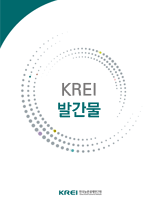


The purpose of this paper is to explore the U.S. food safety system and programs, and draw policy implications for Korea which now faces serious criticism from consumers. Following principles are important for the U.S. food safety system: 1) safe and wholesome food may be marketed; (2) regulatory de...
The purpose of this paper is to explore the U.S. food safety system and programs, and draw policy implications for Korea which now faces serious criticism from consumers. Following principles are important for the U.S. food safety system: 1) safe and wholesome food may be marketed; (2) regulatory decision-making in food safety be science-based; (3) the government's enforcement responsibility; and, (5) the regulatory process be transparent and accessible to the public. The lessons we learn from the U.S. food safety system are: 1) strict management of import inspection system; 2) enforcement of preventive measures; 3) efficient management of food safety administration; and, 4) increasing responsibility of food manufacturer and distributors. In addition, enforcement of current food safety programs including, country of origin, HACCP, tracebility, etc be equally important for the effective implementation of food safety programs.
KREI의 출판물은 판매 대행사 (정부간행물판매센터)와 아래 서점에서 구입 하실 수 있습니다.
| 교보문고 | http://www.kyobobook.co.kr/ |
|---|---|
| 영풍문고 | http://www.ypbooks.co.kr/ |
| 알라딘 | http://www.aladin.co.kr/ |
| 상세정보 조회 | 좋아요 | 다운로드 | 스크랩 | SNS공유 |
|---|---|---|---|---|
| 9594 | 0 | 12 | 0 | 0 |